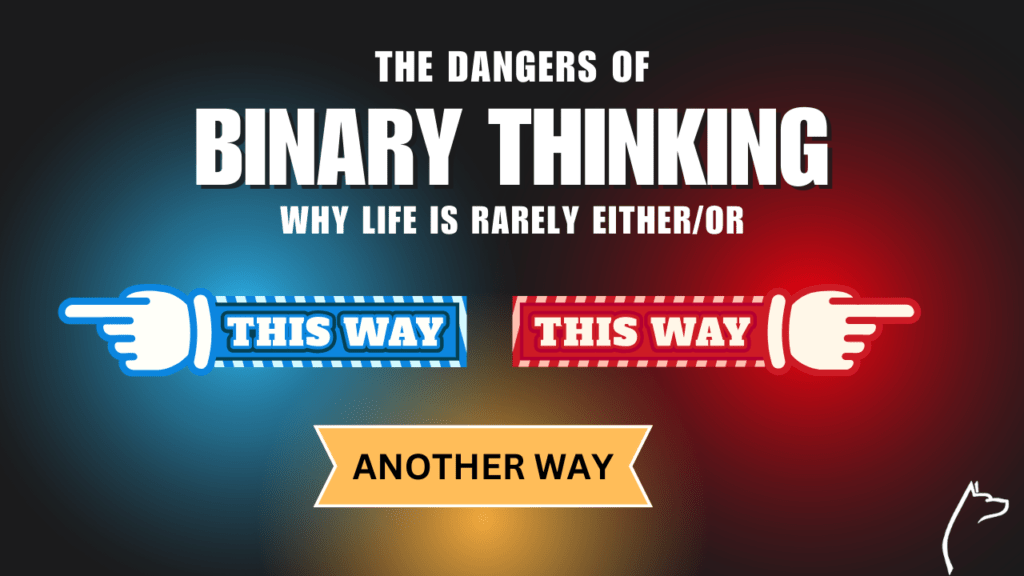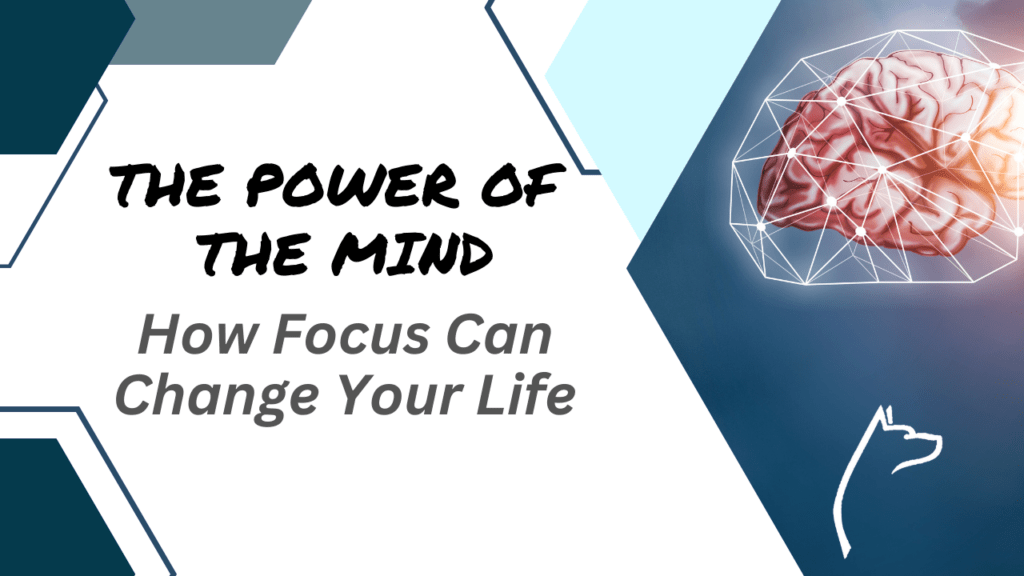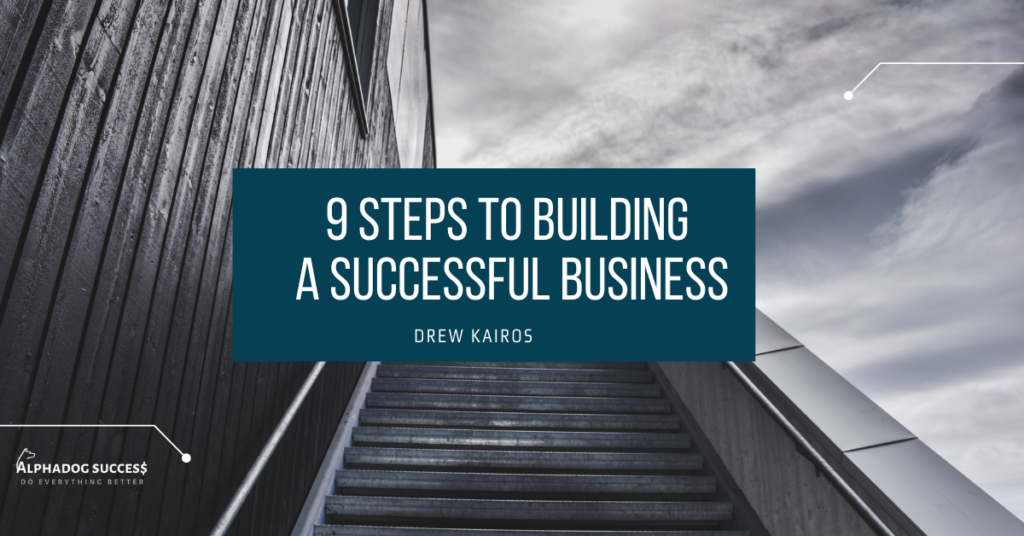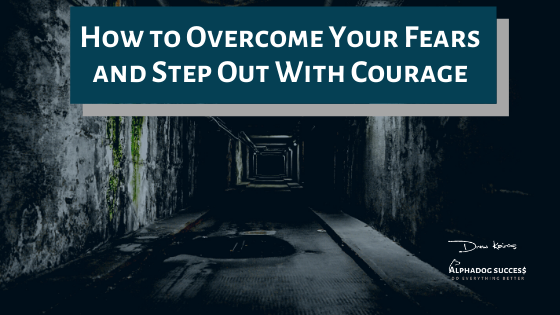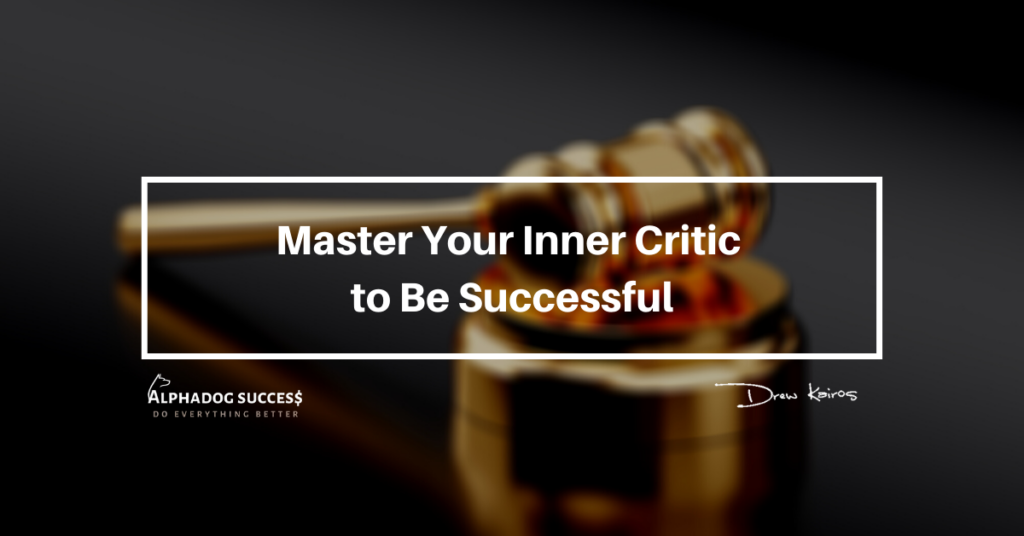The Trap Of Simple Choices: How False Dichotomies Limit Our Thinking
As humans, we love simplicity. In fact, it’s in our programming. It just makes everything feel more safe and manageable. So, we categorize the world into neat little boxes—this or that, light or dark, true or untrue, good or bad. But here’s the thing: the world is rarely that simple. Life doesn’t fit neatly into either/or. Yet, we’ve become conditioned to see it that way, often falling victim to what’s called the false dilemma or false dichotomy. This logical fallacy limits our thinking by presenting only two choices, as if they’re the only options. When in reality, there are an unlimited number of of other possibilities. You’ve seen this before: In these examples, the argument oversimplifies complex situations by forcing you to choose between two extremes, ignoring the fact that other possibilities exist. For instance, maybe you don’t have to pick a side, maybe there are other ways to fund higher wages without raising prices, or maybe… just maybe, life is more nuanced than “either/or.” The Everyday Trap of Dichotomiesazx False dichotomies don’t just show up in political debates and news headlines. They’re part of how we navigate the world and show up in both our internal reasoning and the ways we interact with others. Take this simple question: How many ways are there to get the number 5 in a math equation? Most people will default to the obvious: 2+3 or 4+1. But what about 10 – 5? Or 1 × 5? Or even √25? The point is, there’s rarely just one way to solve a problem—or even just two. Life is full of infinite possibilities, yet we often limit ourselves because our thinking has been shaped to see the world in limited, binary terms. For example: The truth is, life exists in the gray areas. It’s rarely just this or that. And when we recognize this, we open ourselves up to a world of possibilities. False Dilemmas and Their Influence False dilemmas are a way of limiting choice, often used intentionally in media or arguments to persuade or pressure people into supporting their stance. The majority of news headlines like “XYZ Happened – This Is What It Means” cater to those who prefer to have their thinking done for them. This is “effect thinking”—reacting to the world and letting others dictate the meaning. On the other hand, “cause thinking” flips the script. It’s about creating your own meaning. Instead of seeing a headline or argument and thinking, “Well, I guess those are my only choices,” you pause and ask, “What other options might exist? What’s being left out?” This shift is simple yet powerful, but it takes practice. Why? Because our brains love patterns and shortcuts. They crave simplicity. But simplicity often comes at the cost of creativity and truth. The Danger of Staying in the Binary Box When we allow ourselves to be limited by false dichotomies, we miss out on opportunities for growth, understanding, and innovation. Worse, we allow others to control the narrative. Here’s an example: Imagine someone says, “You can either quit your job to pursue your passion or stay miserable forever.” This argument creates a false sense of urgency and pressure. But if you pause and think critically, you might find alternatives: The problem with false dichotomies is that they blind us to the middle ground, the creative solutions, and the possibilities beyond A or B. Divergent Thinking: Breaking Free from Binaries The antidote to false dilemmas is divergent thinking—the ability to explore multiple solutions and perspectives. Divergent thinking asks, “How many ways can we approach this?” instead of, “Which of these two choices is better?” Let’s try an exercise to flex this muscle: For example: By forcing yourself to explore additional possibilities, you not only generate creative solutions but also regain control over the narrative. The Freedom of Rejecting False Dichotomies When you stop accepting either/or thinking, you realize just how much choice you truly have. False dilemmas want to box you in, but life is rarely that rigid. Remember, the world is only 10% what happens to you and 90% how you react—or more accurately, the meaning you assign to it. That meaning is yours to create. Don’t let others dictate your choices, your thinking, or your path. The moment you reject the binary mindset, you step into a world of infinite possibility. So, next time someone says you have to choose between A or B, take a step back and ask yourself: The world isn’t just light and dark. It’s full of color, nuance, and opportunity—if you’re willing to see it.
The Trap Of Simple Choices: How False Dichotomies Limit Our Thinking Read More »

